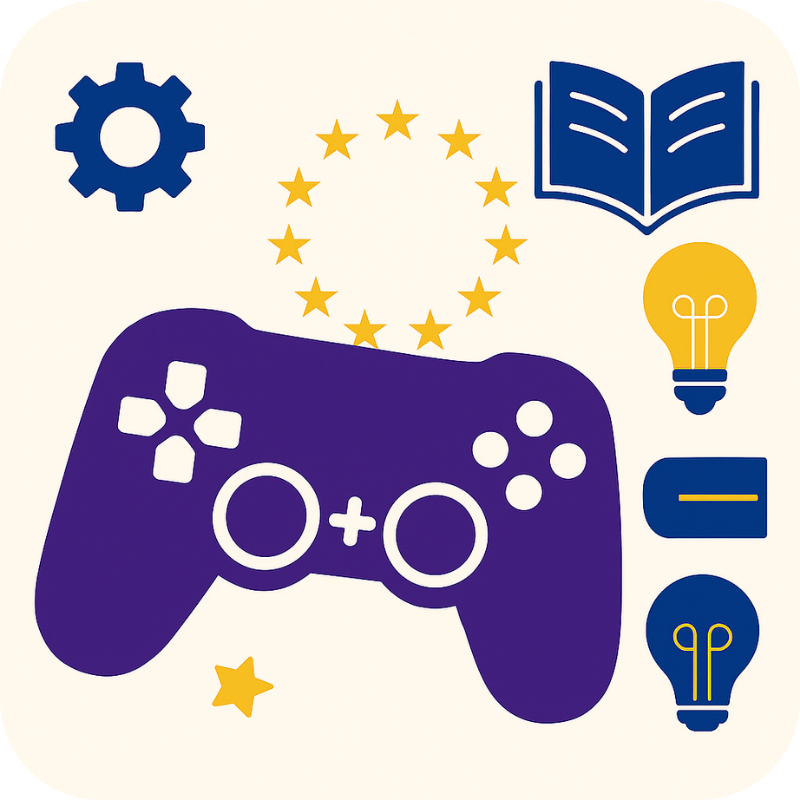
Image created with Perplexity
What do freedom, equality, and solidarity have to do with a game controller? In today’s digital world, quite a lot. The European Union’s core values – like inclusion, justice, non-discrimination, and democracy – can sometimes feel distant or abstract to young people. But what if these values could be experienced, debated, and understood through something as familiar and engaging as a video game or a classroom board game?
Why EU values matter for young people
The EU is built on a set of shared values that are the foundation of its societies: human dignity, freedom, democracy, equality, rule of law, and respect for human rights. These aren’t just words in a treaty; they shape how people live, work, and interact across Europe. For youth, understanding these values is key to becoming active, informed citizens who can engage in democratic life and help build a fairer, more inclusive society.
The challenge: Making values relevant
Traditional lessons about the EU can sometimes seem heavy or remote. Names of treaties, institutions, and historical figures may not spark excitement. That’s why educators and youth workers are turning to game-based learning and gamification to bring EU values to life.
Game-based learning: Turning play into purpose
Game-based learning (GBL) uses the mechanics and engagement of games to teach real-world content and skills. Unlike simply adding points or badges (gamification), GBL immerses players in scenarios where they must make decisions, solve problems, and collaborate – mirroring the challenges of democratic participation and ethical dilemmas.
For example, popular video games can be adapted to build virtual European cities where students explore concepts like diversity, sustainability, and cooperation. Interactive fiction games let players step into the shoes of policymakers, making choices that affect communities and learning about the consequences of those decisions.
Serious games: Bringing values to life
Educational games designed to teach EU values often include quizzes, challenges, and role-playing elements that test knowledge and encourage reflection. Players might debate real issues, experience the importance of participation and compromise, and reflect on key principles such as freedom of expression, gender equality, and non-discrimination. These games are not just about memorising facts – they encourage discussion, critical thinking, and empathy.
Why games work
From game controller to active citizenship
The EU Youth Strategy emphasises the importance of engaging, connecting, and empowering young people. Game-based learning is a powerful tool for achieving these goals. When youth debate, negotiate, and make decisions in a game, they’re not just playing – they’re practising democracy, learning about justice, and discovering what it means to be a European citizen.
So next time you pick up a game controller or join a classroom board game, remember: you might just be learning how to build a better Europe – one move at a time.